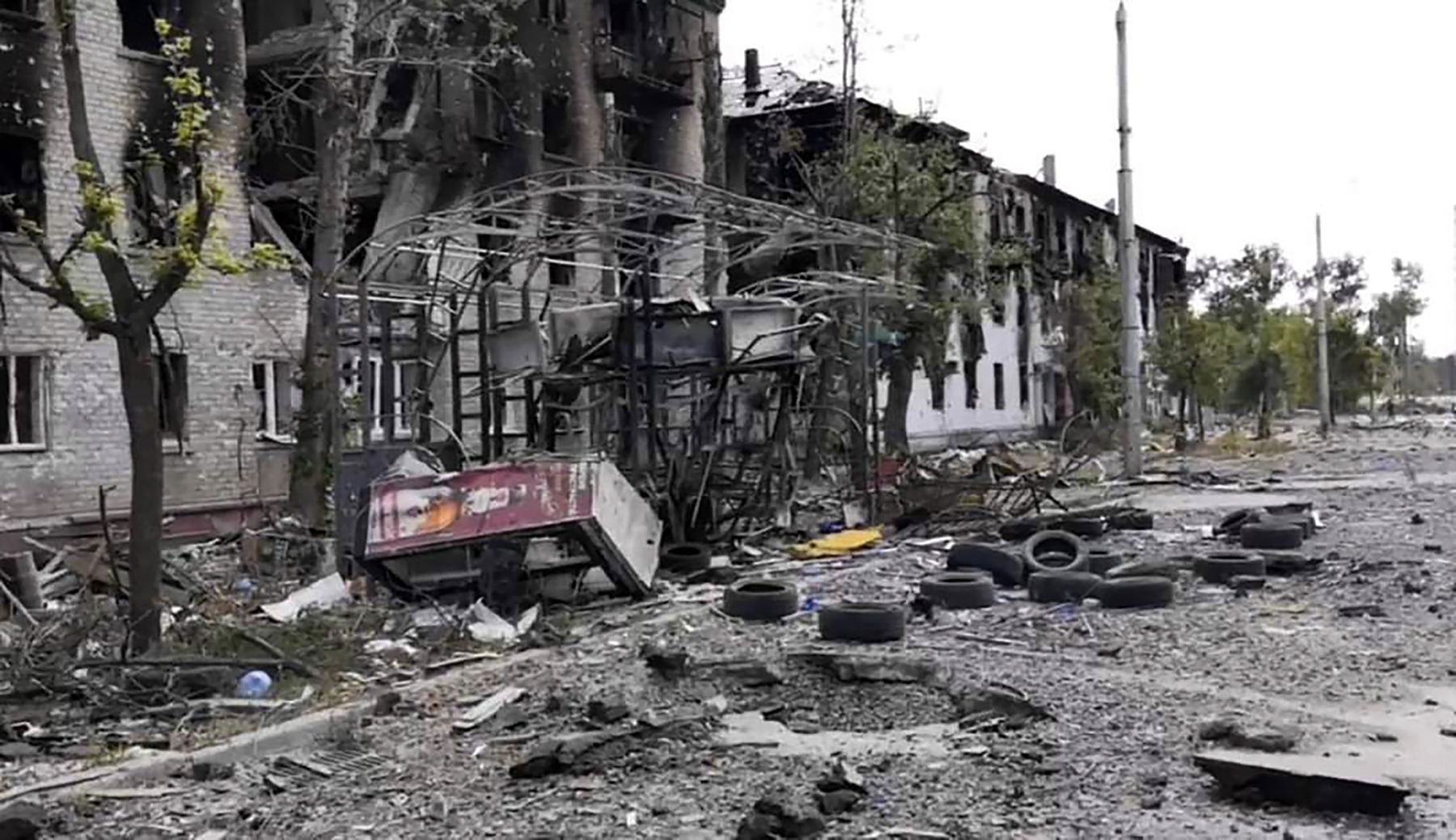
Russia has claimed its forces have taken full control of Luhansk province in eastern Ukraine, after capturing the final Ukrainian holdout of Lysychansk.
Russian Defence Minister Sergei Shoigu informed President Vladimir Putin that Luhansk had been “liberated”, the defence ministry said on Sunday, using a term Ukrainians have dismissed as war propaganda. Russia earlier said its forces had captured villages around Lysychansk and encircled the city.
Ukraine’s military confirmed that its forces had withdrawn from Lysychansk.
“The continuation of the defence of the city would lead to fatal consequences. In order to preserve the lives of Ukrainian defenders, a decision was made to withdraw,” it said in a statement on social media on Sunday.
In his nightly video address, Ukrainian President Volodymyr Zelenskyy acknowledged the withdrawal but said the fight for the city was still raging on its outskirts.
He added that “Ukraine does not give anything back” and pledged to retake the city with more modern weapons. Citing his forces’ success in recapturing other territory, he promised: “There will be a day when we will say the same about Donbas” – referring to the eastern region made up of Luhansk and Donetsk.
Earlier, Zelenskyy said Kyiv’s forces were still battling Russian soldiers on Lysychansk’s outskirts “in a very difficult and dangerous situation”.
“We cannot give you the final judgment. Lysychansk is still being fought for,” Zelenskyy told a news conference in Kyiv given alongside Australia’s visiting prime minister. He noted that territory can move quickly from one side to the other.
Ukrainian officials had earlier reported intense artillery barrages on residential areas.
Luhansk Governor Serhiy Haidai had written on his Telegram account: “The Russians are strengthening their positions in the Lysychansk area, the city is on fire … They attacked the city with inexplicably brutal tactics.”
Meanwhile, the Institute for the Study of War, a Washington-based think tank, wrote in a briefing note that “Ukrainian forces likely conducted a deliberate withdrawal from Lysychansk, resulting in the Russian seizure of the city on July 2”.
The briefing noted that Ukrainian military officials did not “publicly announce a troop withdrawal but neither did they report on defensive battles around Lysychansk”. It added Russia would “likely establish control over the remaining territory of Luhansk Oblast in coming days”.
Ukrainian fighters spent weeks trying to defend Lysychansk and to keep it from falling to Russia, as neighbouring Severodonetsk did last week. A presidential adviser predicted late on Saturday that the city’s fate could be determined within days.
A river separates Lysychansk from Severodonetsk. Oleksiy Arestovych, an adviser to the Ukrainian president, said during an online interview late on Saturday that Russian forces had managed for the first time to cross the river from the north, creating a “threatening” situation.

Arestovych said at the time that Russian forces had not reached the centre of the city but that the course of the fighting indicated the battle for Lysychansk would be decided by Monday.
Russian separatists have been fighting Ukrainian forces in the Donbas region since Russia annexed Crimea in 2014.
Prior to the Russian invasion, separatists had created so-called people’s republics in portions of both Luhansk and Donetsk, although they are not internationally recognised. Shortly before launching the invasion of Ukraine on February 24, Putin declared both regions independent of Ukraine.
Putin has maintained the predominantly Russian-speaking Donbas region is pro-Russia, although polls have indicated that is not the case.
The Russian leader initially targeted Kyiv and other western cities after launching the invasion but refocused on the eastern Donbas region after its wider offensive stalled in late March.
If Russia does take complete control of Luhansk, it will be better positioned for an offensive on Donetsk, with the Ukrainian-held city of Sloviansk, which has come under rocket attacks several times since Russia’s invasion began, likely the next target.
While Russia’s superior firepower has aided its advance, the Institute for the Study of War noted in its briefing that Russian forces are likely to have a difficult time advancing in Donetsk beyond the cities of Sloviansk and Kramatorsk.







